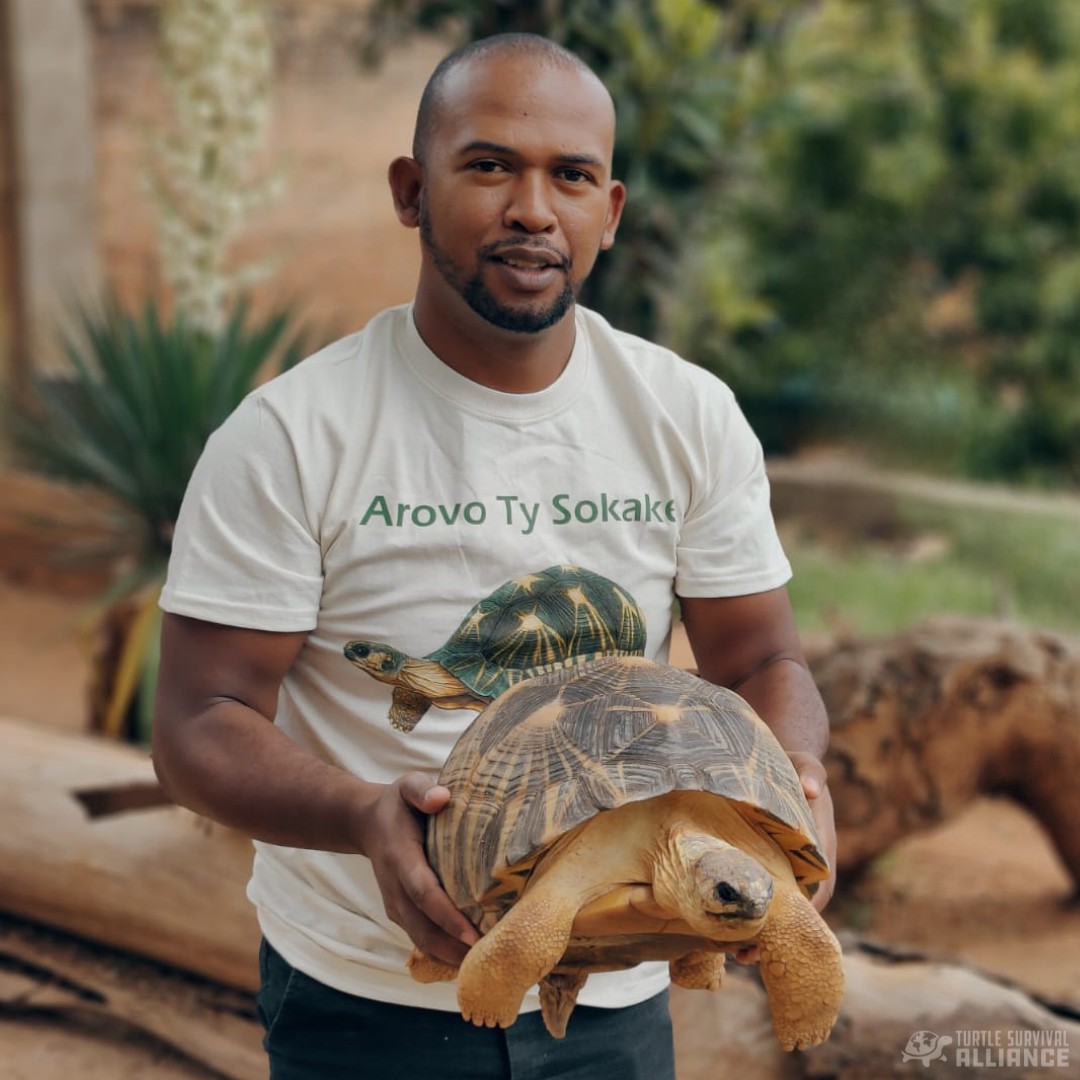– The significance of Hery Lova Razafimamonjiraibe’s appointment as Country Director in Madagascar’s wildlife conservation efforts
– The challenges and roles of managing Madagascar’s endemic tortoise species, with a focus on Radiated Tortoises
– The intertwining of community-managed forests or protected areas with wildlife stewardship in Madagascar
– Administrative strategies for enhancing the effectiveness of wildlife conservation programs
– Integration of traditional practices with modern conservation methods for sustainable ecosystem management
—
With the recent appointment of Hery Lova Razafimamonjiraibe as Country Director for Madagascar’s program, a pivotal shift in wildlife conservation strategies is on the horizon. Hery’s entry into the fold embodies a strategic infusion of seasoned expertise into the vital cause of saving Madagascar’s precious tortoise species from the brink. The nation’s treasure, the Radiated Tortoise, alongside four other endemic tortoises, stands at the focal point of dedicated conservation resources.
Hery’s diverse background traces back to a multitude of roles within international non-governmental organizations, where managing projects and personnel was not an occasional task but a daily endeavor. Such a bedrock of experience offers an advantage in administratively advancing conservation objectives within the nation’s unique ecosystems.
Madagascar, a biodiversity hotspot, is unrivaled in its zoological wonders, not the least of which is the iconic Radiated Tortoise. Recognized by its star-patterned shell, this tortoise has become a symbol of the island’s natural heritage. Yet, it battles against the threats of habitat loss, poaching, and the illegal pet trade. Successful revival and maintenance of these endangered species within their native habitat require an intricate understanding of both the ecological dynamics of Madagascar and the socio-economic backdrop it operates within.
Restoration efforts are pragmatic yet ambitious. They involve a multifaceted approach where each Radiated Tortoise under care is prepared for reintroduction within community-managed forests or protected areas—a delicate balance that relies heavily on local cooperation and sustainable resource use. Hery’s role covers everything from ensuring the health and readiness of these animals for their return to the landscape to devising innovative ways to involve local communities in protecting their natural heritage.
Key to successful wildlife management is the implementation of effective administrative strategies. In the case of Madagascar’s endeavors, this means situating capable leaders at critical junctions of the initiatives. Hery Lova Razafimamonjiraibe represents precisely that—fusing sharp administrative acumen with a passion for conservation. His expertise promises to optimize operational efficiency and, as a result, enhance the likelihood of achieving tangible conservation successes.
Additionally, addressing the challenges of Madagascar’s wildlife conservation requires a harmonious blend of local and global knowledge. Effective leaders like Hery are expected to integrate traditional environmental knowledge from the island’s communities with contemporary conservation techniques. This involves molding the administrative framework to encourage local participation and ownership—essential elements for sustained protection and revival of these endangered species.
Hery’s leadership in environmental stewardship also marks a significant milestone in the program’s trajectory toward innovation. Modern conservation demands more than species preservation; it encompasses a holistic view of ecosystems, recognizing the interdependencies of flora, fauna, and human activities. The protective measures advocated by leaders like Hery encourage ecological resilience, supporting wildlife and local livelihoods.
Aside from his administrative proficiency, Hery’s role also entrusts him with fostering partnerships and collaborations within Madagascar and the international conservation community. Such alliances are crucial for pooling expertise and resources and advocating for policies that benefit the island’s natural ecosystems and its inhabitant species.
Crafting effective strategies also means staying abreast of developments in conservation science and policy. The position of Country Director involves continuous research and adaptation to innovative practices while maintaining a strong foundation in tried-and-tested methods. Conservation is not static, nor are the strategies implemented under Hery’s guidance, which must remain dynamic and responsive to changing environmental conditions.
Furthermore, Hery’s responsibilities will encompass the vital task of educating and empowering local communities. This aspect goes beyond mere dialogue; it means deeply engaging with the culture and traditions of Madagascar’s people to craft conservation narratives that resonate with them. By doing so, conservation initiatives become more than foreign concepts—they evolve into integral parts of communal identity and action.
In light of the challenges faced by Madagascar’s biodiversity, the country’s new directorship holds considerable promise. Hery Lova Razafimamonjiraibe’s expertise in personnel and project management is an asset that, if leveraged with strategic intent and active community involvement, could shift the course of wildlife conservation in Madagascar.
Throughout the history of resource management, leadership has repeatedly proven to be a determining factor in the success or failure of conservation efforts. Hery’s appointment heralds a chapter where administrative leadership meets ecological stewardship. With his guidance, Madagascar’s conservation program aims to safeguard the iconic Radiated Tortoise and restore the island’s broader ecological systems to a balanced prosperity.
Integrating administrative prowess with a dedicated focus on the country’s unique environmental challenges positions Madagascar to experience significant strides in ecosystem management and species conservation. Within this narrative, Hery Lova Razafimamonjiraibe stands central, embodying the drive and the discipline needed to turn the tides for the endangered tortoises of Madagascar and the natural habitats they call home. With his leadership, the program is poised to make progress that could be an emblem of hope for global wildlife conservationists.
*****
Source Description
We are pleased to announce Hery Lova Razafimamonjiraibe as the new Country Director for our Madagascar program!
Hery comes to us from various experiences with international NGOs in Madagascar and brings a background of experience in personnel and project management to this rapidly growing program. There are five endemic tortoise species in Madagascar. Still, most of our resources are dedicated to getting the many Radiated Tortoises under our care back on the landscape within community-managed forests or protected areas. Hery’s position on our team represents the first major step in this direction, and we look forward to seeing this program grow with the administrative skills he brings to the table. Welcome, Hery!


